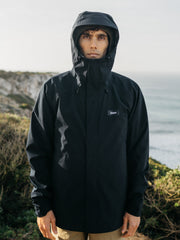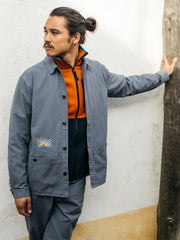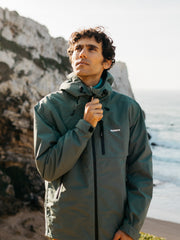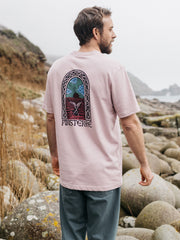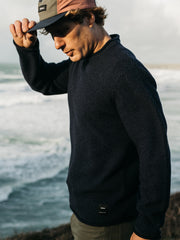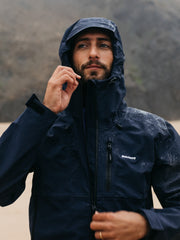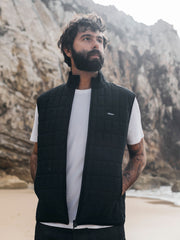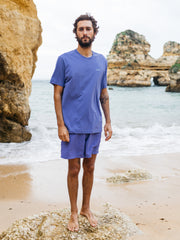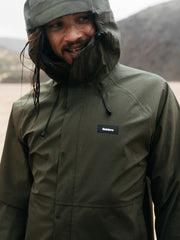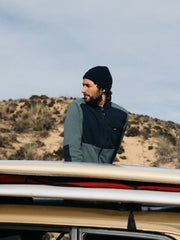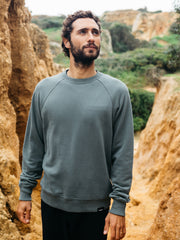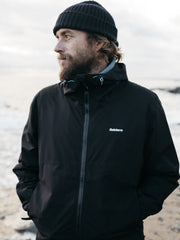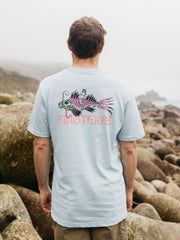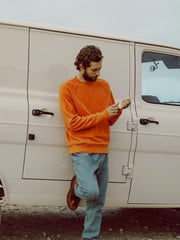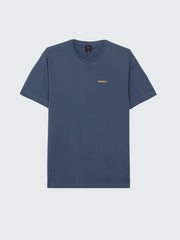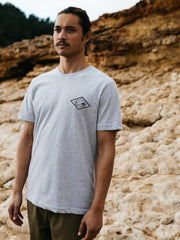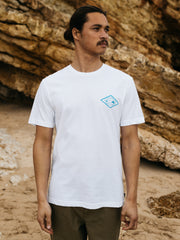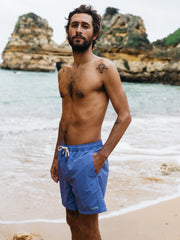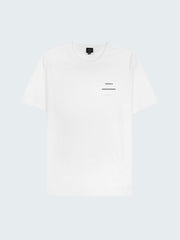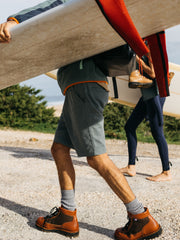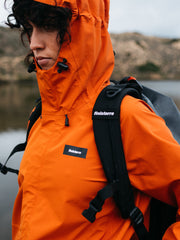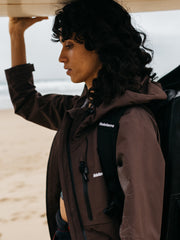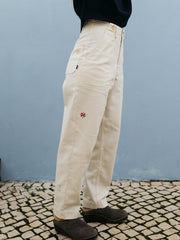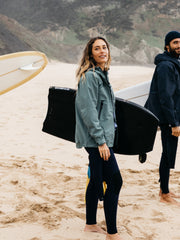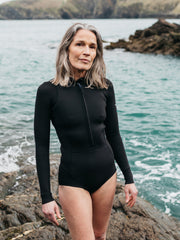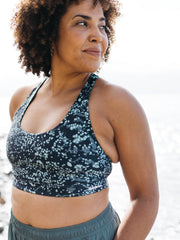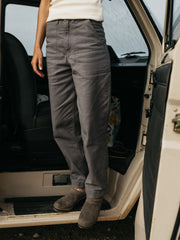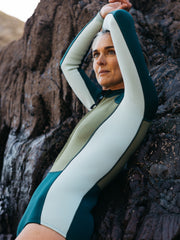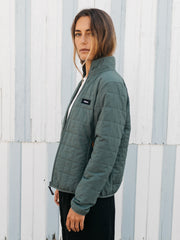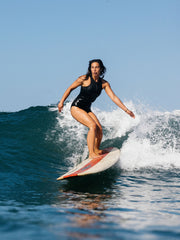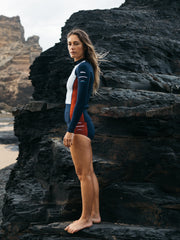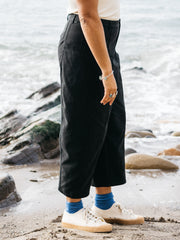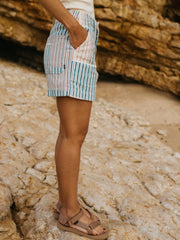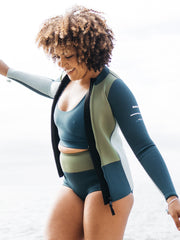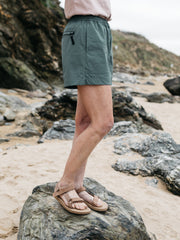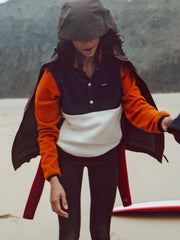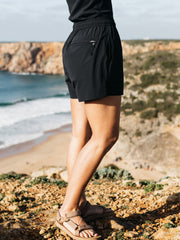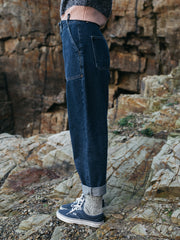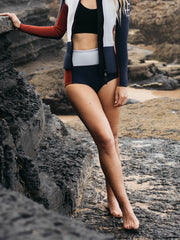As a new mum, this resonates with me. We might say that we have no time to commit to getting in the water and surfing, as this is a more acceptable barrier, but the real concern is perhaps the worry that spending time on exercise or anything that doesn’t involve the family might be perceived as self-indulgent and could imply that we are neglecting our domestic and maternal duties. It’s a sad but real truth.
For me personally, I don’t view surfing as a sport; more of an artform or practice. A release that is closely related to my sanity. But let’s refer to it as a sport for arguments sake. For many women and men, to refer to the act of participating in ’sport’ itself holds baggage. Sport often has associations with being competitive, aggressive and unfeminine; this is not a barrier for some women, but for many others it is. This is perhaps a wider social issue. For many, these negative associations can link back to experiences in school or childhood, during those difficult adolescent years. Perhaps the fact that for many women growing up, being a professional athlete was not something recognised as an attainable career. A brief look into gender pay disparity in sports can give an insight into why that might be the case.
The beauty of surfing is that it can be competitive if you want, but it’s also a very personal act. I don’t have the stats but it has to be close to less than 1% of the surfing population who do it competitively. For many of the girls I am teaching, the appeal of surfing is the personal challenge, alongside its relationship with nature and the social aspect. For many, it’s about health and wellbeing, be that mental health or physical health. There is no arguing that the health and social benefits of surfing are powerful and wide ranging.
This is why it’s important to try and remember that not everyone wants to be the next big thing in surfing. Many will fall in love with it and hold it central to their lives, but might never experience the machismo and competitive reef breaks. That’s fine, in fact, it might even be advisable. After all, fun and wellbeing are key. Why should it matter how your personal journey started so long as it did? I’m still earning my stripes with surfing, I’ve put the years in, had the hold downs, the knock backs, the reef cuts, bruises, heartbreaks and too many beautiful moments to count. I’ve chased waves around the globe as well as at home. I’ve done it alone, with my husband and with the masses.
Yonder was a way for me to try to create just one other pathway in the local area for some people to start to get the same enjoyment as I do from the sea. I recognised the physical and mental health benefits of the ocean and wanted to create something that I felt might go some way to breaking down some of the barriers and giving others opportunities. I’m still learning how to break down the barriers and create a positive and active community around surfing; not just for women, but for their partners, kids, friends and the wider community.
I believe that my role, outside of my own personal surfing experience, is to try to create a positive image of female cold water surfing, and invite others to experience that stoke, together. Ultimately, we all surf alone. Yonder isn’t about sectioning off parts of the beach and reserving them for women; it's about empowering women to join a positive community with a confidence they might not have on their own. East coast surf legend Steve ‘Crabbie’ Crawford said recently “Over the past 15 years I’ve given thousands of women surf lessons, but few take it up full time, well done Sal for breaking a rubbish mould and making a new one. Girls becoming part of our North East surf culture benefits us all”.
I founded Yonder to offer just one different path into surfing; a path which appeals to many women of all ages, backgrounds and experiences. With Yonder we strive to equip women with the knowledge they need to become independent surfers, forecasting, safety, etiquette and advice on equipment. When I head out for my early morning fix at the local beachbreak before I teach a lesson, I often see a small crew of dedicated ladies waving at me in the water. That was an extremely rare sight just a couple of years ago. Those who come through Yonder and decide to take it further are starting to see the rewards of their hard work; making connections, making memories and seeing the myriad of wonderful benefits the sea offers us.


